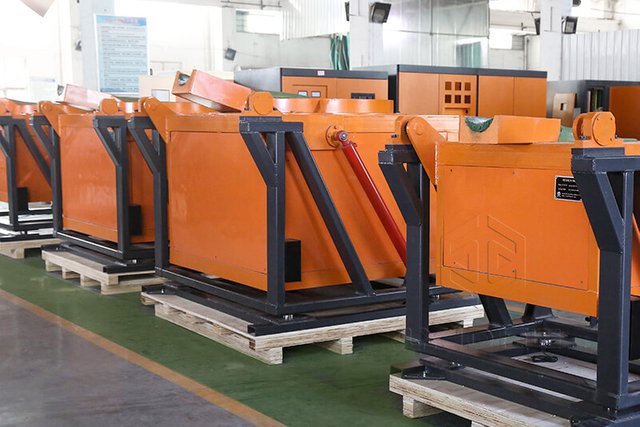The aluminum scrap melting furnace is an energy-saving and environmentally friendly furnace, mainly used for melting or smelting low-melting point non-ferrous metals and alloys such as aluminum, zinc, lead, tin, and cadmium.
The main job of the aluminum scrap melting furnace is to remelt the scrap aluminum alloy slag it out and then pour it into aluminum products. In addition, it can also be used for aluminum liquid insulation, degassing, and refining operations. This kind of furnace is especially suitable for smelting sites with a lot of recycled materials such as aluminum profiles and aluminum products and intermittent operation of a single furnace, such as aluminum profiles, aluminum products, alloy plates, and scrap aluminum recycling.

Fusible Materials
Aluminum scrap melting furnaces can smelt various types of scrap aluminum, including:
- Aluminum alloy: One of the most common types of scrap aluminum, it can be used to make various aluminum alloy products.
- Aluminum plate: Scrap aluminum plate is one of the common materials in aluminum scrap melting furnaces and can be used to make various aluminum products.
- Aluminum profiles: such as doors, windows, furniture, etc.
- Aluminum wire: such as cables, wires, etc.
- Aluminum tubes: such as pipes, radiators, etc.
Melting Time
The time required for an aluminum scrap smelting furnace to melt different scraps of aluminum will vary, depending on the type of scrap aluminum and the efficiency of the smelting furnace. Generally speaking, the time required to melt 1 ton of scrap aluminum is between 30 minutes and 2 hours. If other metals or alloys need to be added, the melting time and temperature will also vary. Therefore, in actual operation, the melting time and temperature need to be adjusted according to specific conditions to achieve the best melting effect. At the same time, quality testing and control are also required during the smelting process of scrap aluminum to ensure the quality and stability of the final product.
Summarize
Different types and qualities of scrap aluminum have different melting points, chemical compositions, and physical properties, so appropriate adjustments and controls need to be made based on actual conditions during smelting. At the same time, since aluminum scrap melting furnaces use a wide range of fuels, including natural gas, coal gas, heavy oil, etc., it is also necessary to select appropriate fuels and additives based on actual conditions.